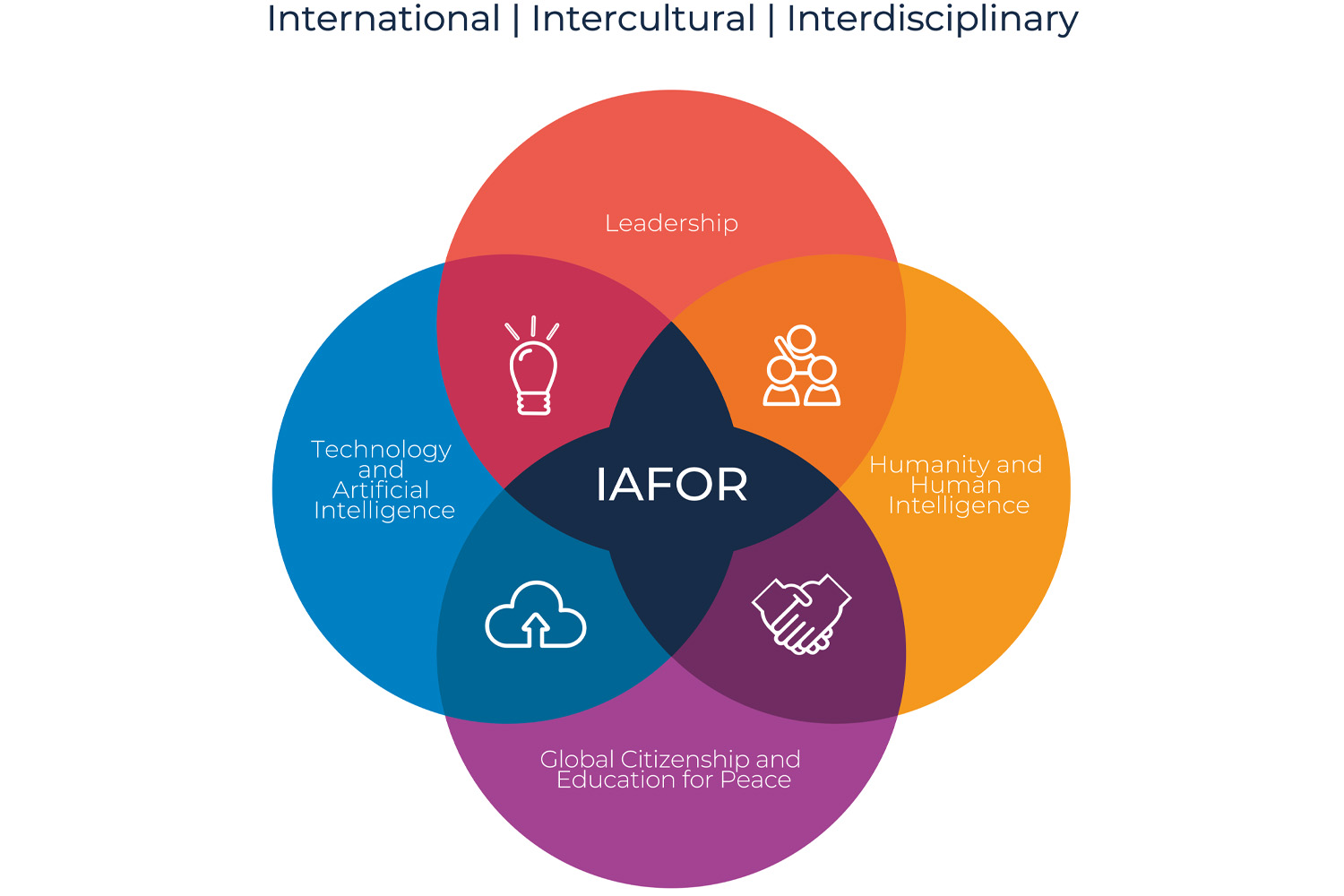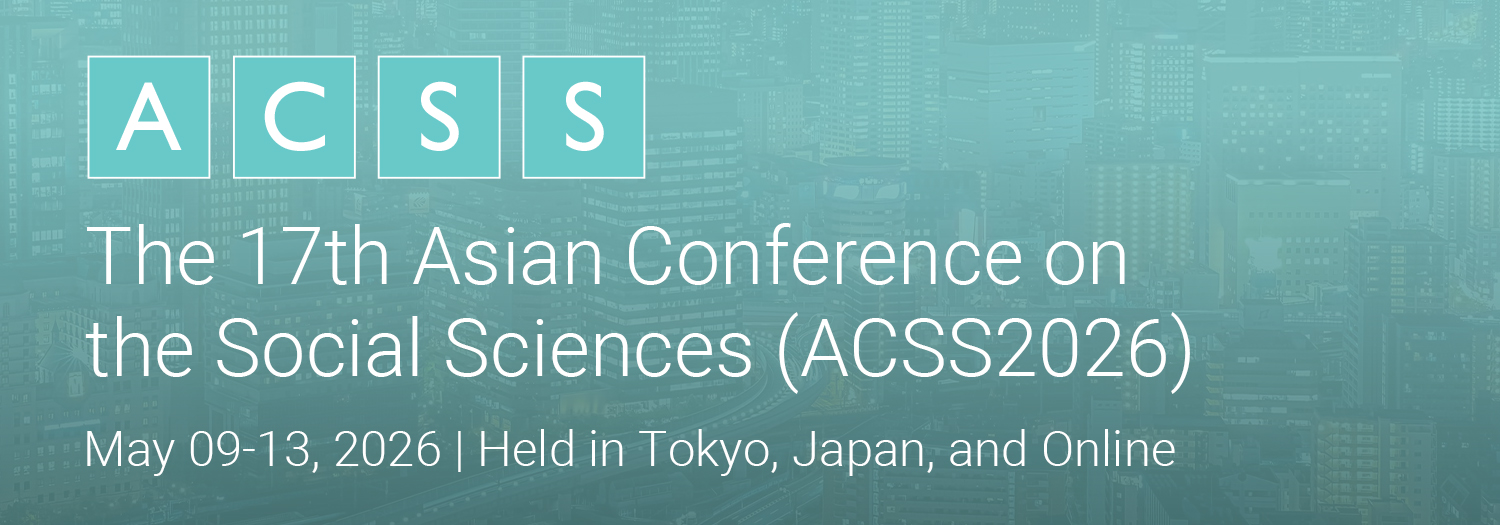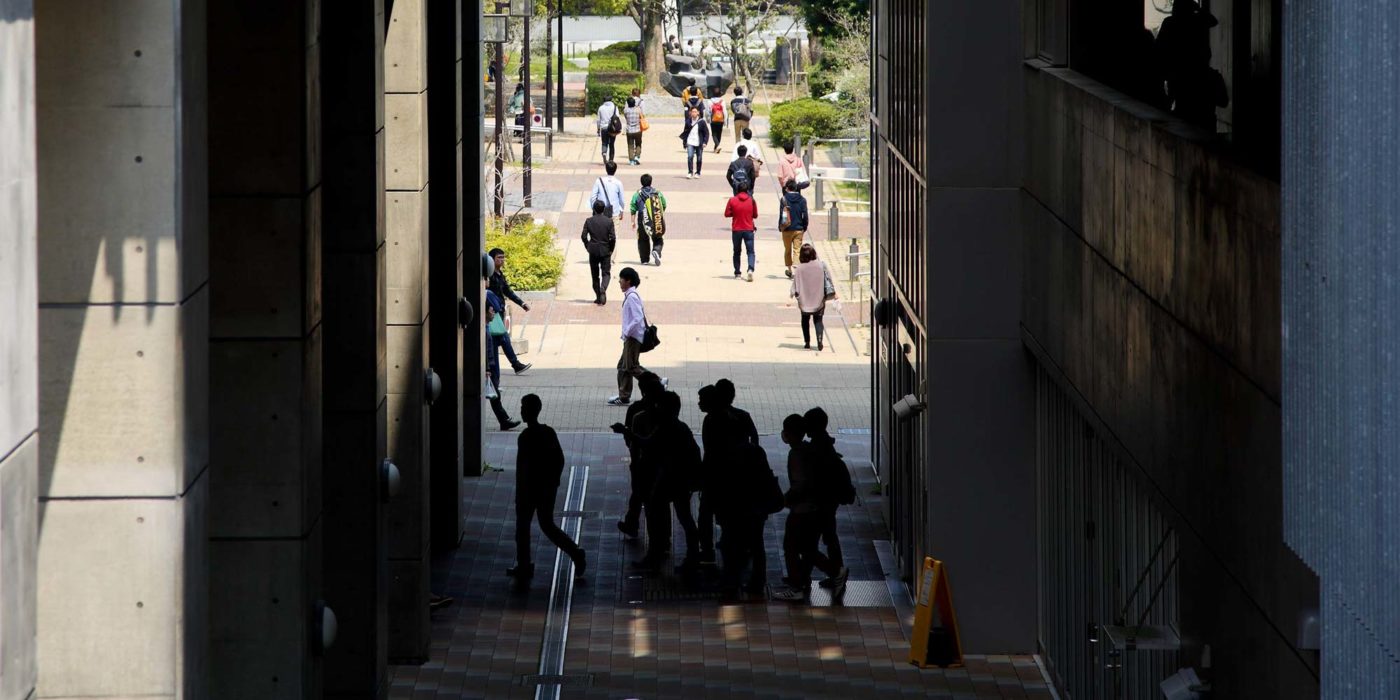Submissions are now open for The 17th Asian Conference on the Social Sciences (ACSS2026). The early bird submission deadline is Thursday, November 27, 2025.
The 17th Asian Conference on the Social Sciences (ACSS2026)
May 09-13, 2026 | Held in Tokyo, Japan and Online
ACSS is organised by IAFOR in association with the IAFOR Research Centre at the Osaka School of International Public Policy (OSIPP) in Osaka University, Japan.
Welcome to the 16th Asian Conference on the Social Sciences (ACSS2026).
Held in partnership with the IAFOR Research Centre at the Osaka School of International Public Policy (OSIPP) at Osaka University, this international conference encourages academics and scholars to meet and exchange ideas and views in a forum stimulating respectful dialogue. This event will afford an exceptional opportunity for renewing old acquaintances, making new contacts, networking, and facilitating partnerships across national and disciplinary borders.
Since its founding in 2009, IAFOR has brought people and ideas together in a variety of events and platforms to promote and celebrate interdisciplinary study, and underline its importance. Over the past year we have engaged in many cross-sectoral projects, including those with universities (the University of Barcelona, Hofstra University, UCL, University of Belgrade and Moscow State University), a think tank (the East-West Center), as well as collaborative projects with the United Nations in New York, and here, with the Government of Japan through the Prime Minister’s office.
With the IAFOR Research Centre, we have engaged in a number of interdisciplinary initiatives we believe will have an important impact on domestic and international public policy conversations. It is through conferences like these that we expand our network and partners, and we have no doubt that ACSS2026 will offer a remarkable opportunity for the sharing of research and best practice, and for the meeting of people and ideas.
The 17th Asian Conference on the Social Sciences (ACSS2026) will be held alongside The 16th Asian Conference on Cultural Studies and The 17th Asian Conference on Arts & Humanities. Registration for one of these conferences will allow delegates to attend sessions in all three.
- Location & Venue: Held at the Tokyo International Forum in Tokyo, Japan, and Online
- Dates: Saturday, May 09, 2026 to Wednesday, May 13, 2026
- Early Bird Abstract Submission Deadline: November 27, 2025*
- Final Abstract Submission Deadline: February 12, 2026
- Registration Deadline for Presenters: March 25, 2026
*Submit early to take advantage of the discounted registration rates. Learn more about our registration options.
If you would like to receive email updates for ACSS, please join our mailing list. If you have any questions, please contact us at [email protected].
IAFOR's Conference Themes for 2025-2029

Our four themes can be seen as standalone themes, but they are also very much in conversation with each other. Themes may be seen as corollaries, complementary, or in opposition/juxtaposition with each other. The themes can be considered as widely as possible and are designed, in keeping with our mission, to encourage ideas across the disciplines.
Read Last Year's Conference Report
Conference News

IAFOR Grant and Scholarship Recipients 2025

Accepted Presentations

Introducing ‘The Forum’, an Exciting New Discussion Format for IAFOR Conferences
About IAFOR
"Inspiring Global Collaborations"
Founded in 2009, The International Academic Forum (IAFOR) is a mission-driven politically independent non-partisan and non-profit organisation dedicated to encouraging interdisciplinary discussion, facilitating intercultural awareness and promoting international exchange, principally through educational interaction and academic research. Based in Japan, its main administrative office is in Nagoya, and its research centre is in the Osaka School of International Public Policy (OSIPP), a graduate school of Osaka University. IAFOR runs research programs and events in partnership with universities, think tanks, and other associations. Through its international, intercultural and interdisciplinary conferences, research, and publications, IAFOR is a network hub for interdisciplinary discussion across Asia and beyond.
Read more about IAFOR.




